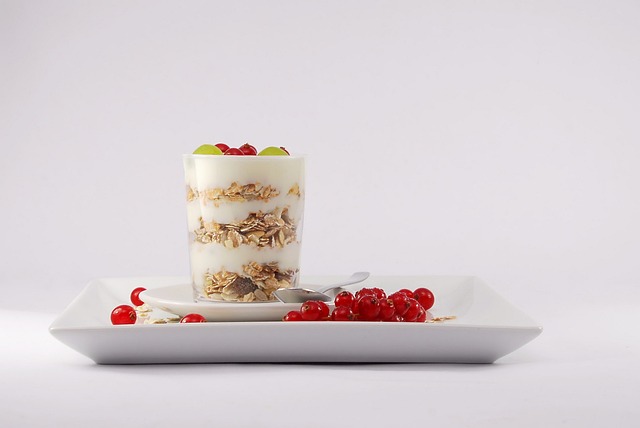From Within: Harnessing the Healing Potential of Probiotics for Skin Health
The Rise of Probiotics in Skincare
In recent years, there has been a growing interest in the beneficial effects of probiotics on overall health. Initially, probiotics were primarily associated with maintaining a healthy gut flora. However, research has shown that these beneficial bacteria offer more than digestive benefits. Probiotics have also emerged as potential wonders for skin health, paving the way for an entirely new approach to skincare.
While probiotics are commonly available in supplement form, their incorporation into topical skincare products has gained significant popularity. In fact, skincare brands are now infusing their products, such as cleansers, serums, and moisturizers, with these beneficial bacteria. Let’s explore how probiotics work their magic from within to improve the health and appearance of our skin.
The Science Behind Probiotics
Probiotics are live microorganisms that provide various health benefits when consumed in adequate amounts. Lactobacillus and Bifidobacterium are two of the most well-known strains of probiotics. These beneficial bacteria work by promoting a healthy balance of microbes in our bodies.
When it comes to skin health, probiotics are believed to strengthen the skin’s natural protective barrier, also known as the acid mantle. This barrier plays a crucial role in preventing the penetration of harmful pathogens and pollutants, thus reducing the risk of inflammatory skin conditions.
The Benefits of Probiotics for Your Skin
1. Improved Skin Barrier Function: Probiotics help fortify the skin’s barrier function, reinforcing its natural defense mechanisms. This can lead to a reduction in moisture loss, resulting in a more hydrated and plump complexion.
2. Reduction in Skin Sensitivity: By restoring the balance of microbes on the skin’s surface, probiotics can help alleviate skin sensitivity and minimize redness or irritation caused by external aggressors.
3. Anti-Aging Properties: Probiotics may aid in reducing the appearance of fine lines and wrinkles. They support the production of ceramides, lipids that help maintain the skin’s moisture levels and elasticity.
4. Calming Inflammatory Skin Conditions: Studies have shown that probiotics can help reduce inflammation associated with skin conditions such as acne, eczema, and rosacea. They help modulate the immune response and promote a healthier skin environment.
How to Incorporate Probiotics into Your Skincare Routine
If you’re interested in reaping the benefits of probiotics for your skin, here are a few tips to incorporate them into your skincare routine:
1. Choose Probiotic-Rich Products: Look for skincare products that specifically mention the inclusion of probiotics or live cultures. These can range from cleansers and toners to moisturizers and masks.
2. Read the Labels: Check the product labels to ensure that the probiotics are listed as active ingredients. This will ensure that you’re using a product that can deliver the intended benefits.
3. Start Slowly: If you’re new to probiotics, start by incorporating them into your skincare routine gradually. Begin with products that have lower concentrations to allow your skin to adjust to the new ingredients.
4. Consistency is Key: Like any skincare routine, consistency is vital to see desired results. Incorporate probiotic-rich products into your daily regimen and give your skin time to reap the benefits.
Conclusion
The incorporation of probiotics into skincare has revolutionized the way we approach skin health. By nurturing the skin from within, probiotics can help improve the skin’s barrier function, reduce sensitivity, combat signs of aging, and calm inflammatory conditions. With continued research and advancements, we can look forward to skincare products that harness the full potential of probiotics for healthier, more radiant skin.







